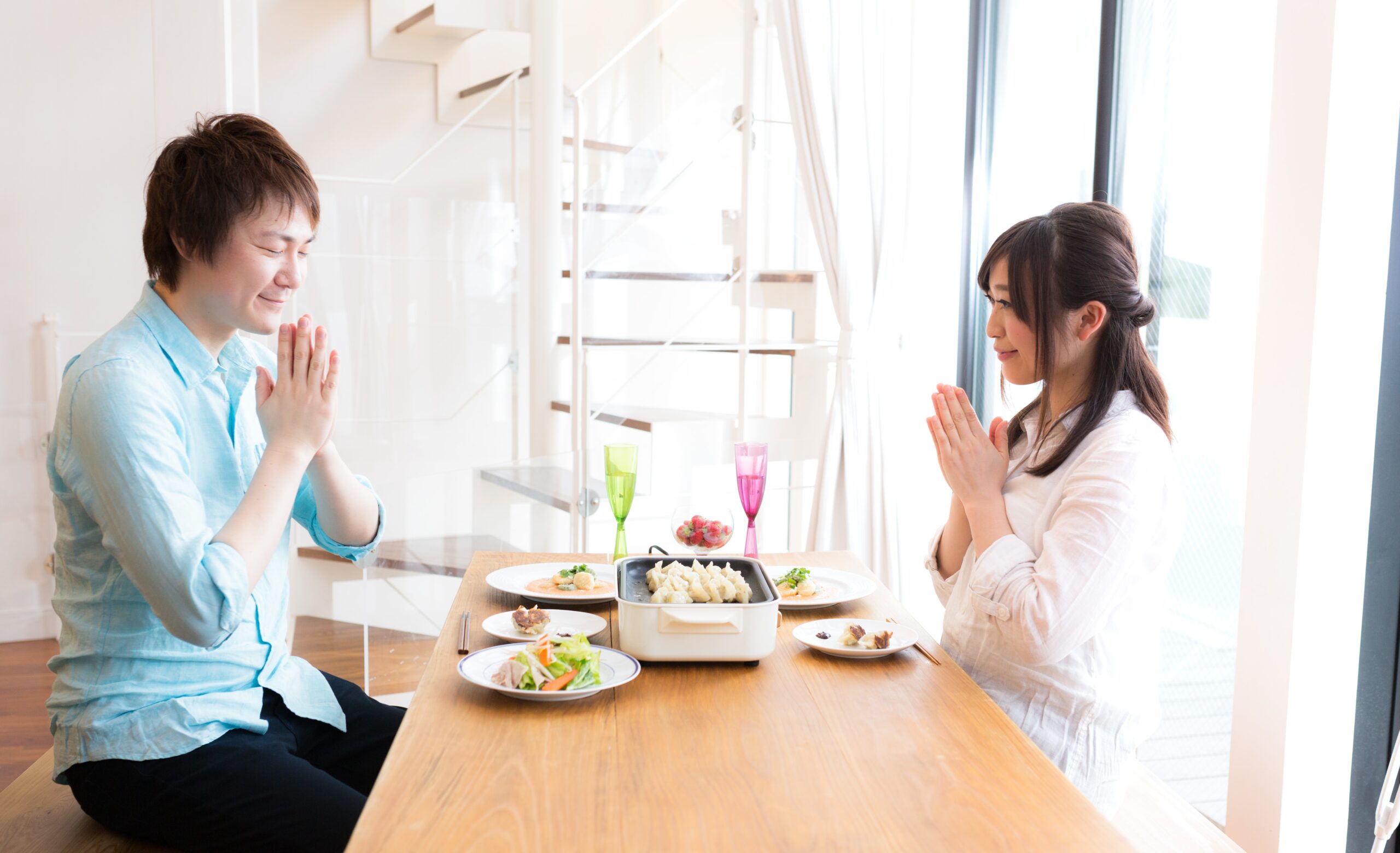今日は、外国人に「いただきますってどういう意味?」って聞かれた時のために、いただきますの意味を考えてみる。
Today, I’m going to think about how to explain “itadakimasu” in case a foreigner asks me, “What does it mean?”
in case 〜:「~の場合に備えて」「~した時のために」
僕的には「ありがとう」って意味だと思っていて、調理してくれた人、野菜や牛、豚などを育ててくれた人、届けてくれた人、命をいただく動物たちに対して感謝する気持ちがこもっているんじゃないかと思う。
For me, it’s like saying “thank you”. It’s about appreciating the people who cooked the food, those who grew the vegetables or raised the cows and pigs, the ones who delivered it, and even the animals whose lives we’re taking.”
For me:僕にとって」「私の考えでは」
those who:「〜する人たち」
the ones who:「〜する人たち」
└”those who” は一般的・抽象的で、よりフォーマル。”the ones who” は具体的・個別的で、カジュアル。
grew/raised:育てる
└”grew” は植物や作物、”raised” は動物や人に使う。
調べてみると…
When I looked it up…
身分の高い人から物をもらう際に、敬意を表するためにその物を頭上に高くささげるような動作をしたことから、「もらう」という意味で「いただく」が使われるようになり、食べ物や飲み物をもらう時に使っていた「いただきます」がのちに食事の挨拶になったらしい。(参考文献1)
It seems that the phrase ‘itadakimasu’ comes from the old custom of showing respect by raising something received from someone of higher status over your head. Over time, it started being used when receiving food or drinks, and eventually became a greeting before meals. (Ref. 1)
It seems that:「~のようだ」「~らしい」
comes from:「〜に由来する」起源や由来を説明する表現。
by 〜ing:「〜することで」。方法。
over time:「徐々に」「時が経つにつれて」
eventually:「最終的に」「やがて」
It seems that {[主]the phrase ‘itadakimasu’ / [動]comes / from the old custom / of showing respect / by raising something / received ←(from someone ←[of higher status]) over your head}.
Over time, / [主]it / [動]started / being used / when receiving food or drinks, / and / (eventually) became / a greeting before meals
また、僕の考えと同じように下の2つの感謝の意味もあるらしい。(参考文献2)
It seems that, just like my own thoughts, the phrase also holds the following two meanings of gratitude.
gratitude:「感謝」
- 「食事を作るために使われた食材」に感謝すること
- 「食事が提供されるまでに関わってくれた全ての人」に感謝すること
- Being thankful for “the ingredients used to prepare the meal”.
- Being thankful for “everyone involved in ensuring the meal makes it to the table”.

コメント